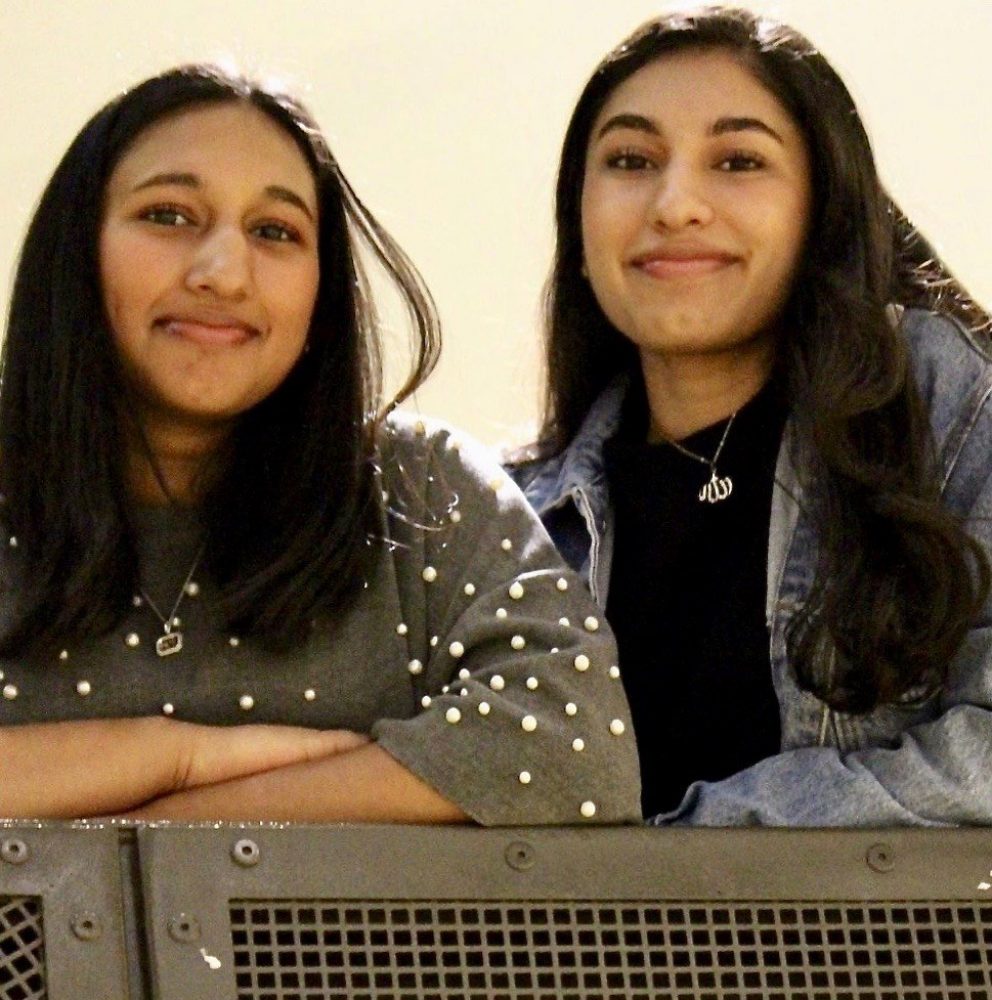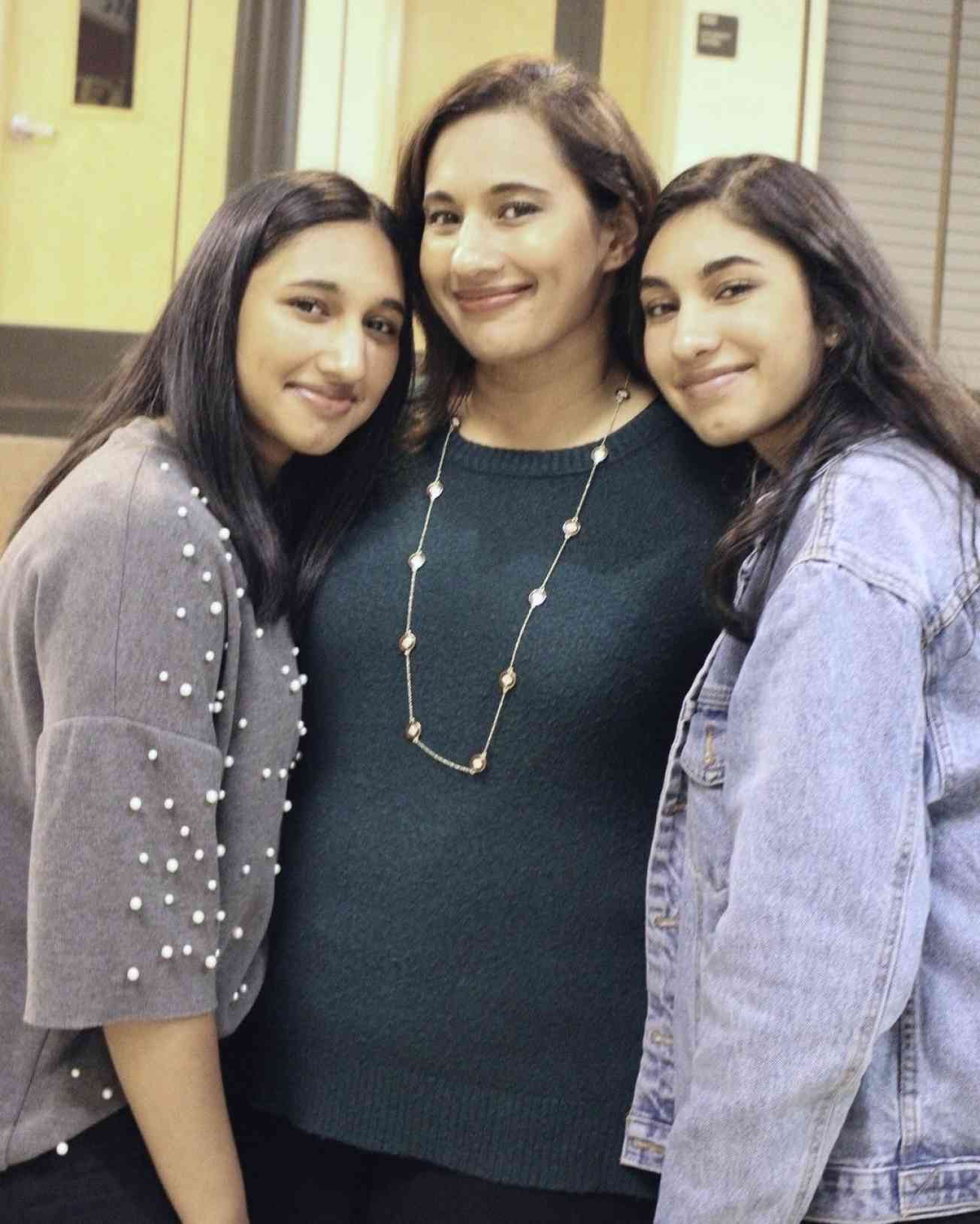Two High School Students Distribute Hope

The Catalyst
In 2018 we participated in an initiative led by our local mosque, to deliver care packages to local refugees. Through this process of delivering packages, we realized how much of an impact our small actions could have on a family for an entire month.
That experience led me to design an independent study project to go to one of the world’s largest refugee camps called Panya located in Jaipupar Pakistan where I visited and interviewed over 500 refugees and recorded their stories.
I also had the opportunity to talk to the Commissioner of refugees to understand where this crisis stems from and what economic factors contribute. When I came back, Nour and I decided that it was time to take action and make a change. So, we decided to create Umeed For All Refugees.
In the camp, I visited the only school that provides secondary education to students. It’s an all-boys school. There were 3000 students from fifth to twelfth grade. These students did not have chairs. They did not have desks. They only had one little book to use to study all of the subjects.
We talked to a student named Arfila. He was 11 years old.
He only said one thing to me. If I could have one thing in the world, it would be to have a book with color.
Hearing that a student wanted to continue learning but didn’t have the basic supplies made me think and reflect on my privilege.
I go to school every single day and I have books with color. But it showed me that even with so little, students and refugee youth still have the motivation to learn. Which then inspired me to want to provide these young refugees with those supplies to continue with their growth as students. Arfila wants to be a pilot when he grows older, and I really hope that he succeeds.
Hope will be the power that heals the refugee crisis.
We put a lot of thought into the name of our organization. We wanted the name to be both impactful and inclusive of all refugees. Hope is the direct translation of “umeed” in both Afghani and Urdu. For us, that’s the center and what shapes our work. That hope can come through education, development, friendship…many different things.
We want to go beyond supporting refugees with materialistic items, beyond the basic necessities. We want to elevate these essential items with the idea of hope.
A refugee is in the middle of a huge time in their lives. They are moving and transitioning from a place that was home to a community that is unfamiliar. We want to provide them with the hope that they will be able to assimilate. The hope that things will get better. The hope for a life that incorporates their past and looks forward to the future.
Family:
Both of our parents originally come from Pakistan. My mom’s side is from Karachi Pakistan. My mom arrived in America in the middle of High School. My grandfather had a watch store in Pakistan. One year, they went on vacation.
The person who was watching the store for them while they were gone had three young children. One of them was kidnapped and held for ransom.
My grandparents didn’t want something like that to happen to my mom. They moved to protect their children and for the education system in America. My grandfather stayed in Pakistan. My mom with her mother and her two sisters came to America on a visa. We did have family in California to support them while they were moving.
Transitioning from Pakistan, a completely different educational system and culture, was a really big social change for her. But her family in L.A. helped her see through the process. Her family provided stability and comfort and allowed her to be able to make the change quickly. This is also something that she instilled in us. And so now we find comfort in our families and stability when we come home from school on a bad day or something like that. And I think that the importance of family really pushed her through a tough time.

Keeping Families Together:
I think that keeping families together is very important in the process of settling refugees.
Not only for political reasons or legal issues but also simply because moving is hard. First, they flee, then they move, and then they transition to a new culture. Adapting is very difficult and traumatic, especially when you’re young. The only thing that you know is your family in that situation. I think that keeping families together is important to be able to grow and adapt
to unfamiliar situations. Especially when people move from and have experienced a traumatic past. That constant in your life is needed to be able to grow from that experience.
Every refugee story is unique and very personal. I think it is unfair, and not our place to assume any of their needs; whether they are physical, emotional, or spiritual.
The Mission of Umeed For All Refugees:
At Umeed, we reach out to families and let them tell us what they need, and then we fill those needs, whether that is by donating strollers or computers or something else entirely. In the future, we hope to be able to spread that kind of direct communication so we’re all on the same page. So we know what is needed and how important it is to a specific individual.
In addition, we want to create a culture within our organization where refugees can reach out to us. We want them to be comfortable enough, that during a hard time, such as a transition to a new place, they can reach out to an organization like Umeed and we can help them.
My main takeaway from creating Umeed is the impact action can have. Once you have an idea and you keep working towards it, your actions will ultimately have an impact. That impact will drive change. That is the greatest thing that I’ve learned from the process of applying for and obtaining a business license, going to a bank and setting up an account, and organizing our organization based on our strengths. I’m the president, Nour is the Vice President and the Outreach Manager.
We’ve learned a lot through this process. But the main thing that I would take away is action, impact, and change.
The action we can all take is to be a friend. We’ve moved around a lot and we thought that was hard. We moved between New York, Arkansas, Seattle, and even Dubai. I think personally, friends inside and outside of school are what pushed me to do my best and made me willing to transition to a new place.
Many refugees don’t have a say in where they end up living for the rest of their lives. But having a person that you can depend on, that you can trust, that you can communicate with, and that that will allow you to be yourself is important to refugees. But it is also important to the friend.
Now you have exposure to another way of life and that is what catalyzes learning and that learning is what catalyzes change.
Our team members obtain informed consent from each individual before an interview takes place. Individuals dictate where their stories may be shared and what personal information they wish to keep private. In situations where the individual is at risk and/or wishes to remain anonymous, alias names are used and other identifying information is removed from interviews immediately after they are received by TSOS. We have also committed not to use refugee images or stories for fundraising purposes without explicit permission. Our top priority is to protect and honor the wishes of our interview subjects.